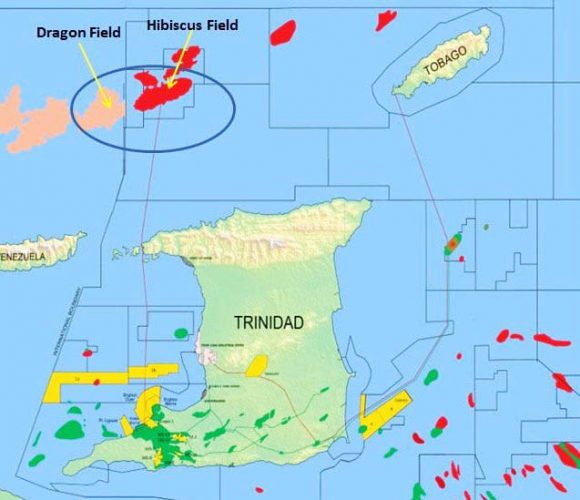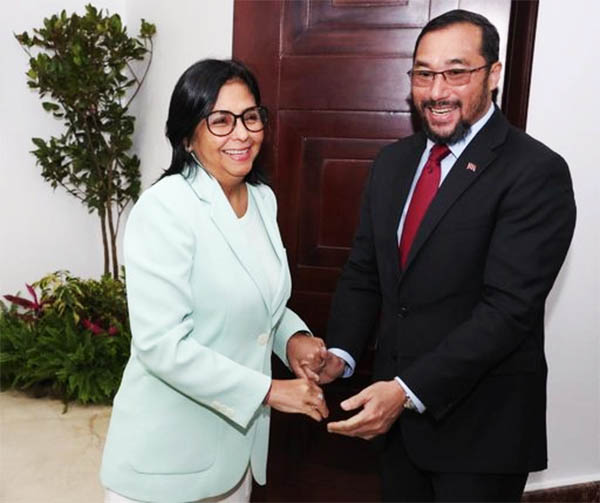Not even Guyana’s recent energy conference in Georgetown could diminish the significance of this month’s visit to Caracas by Trinidad and Tobago’s Energy Minister, Stuart Young, to engage Caracas in talks that could see Port of Spain and Caracas finally, jointly commence development of the Dragon gas field that reportedly could produce around 150 million cubic feet of gas, daily, a project, which, once it is successfully completed will transform both countries into global energy powerhouses.
The project which had been effectively stymied for more than four years by US sanctions that have targeted Venezuela’s energy sector was finally cleared for execution by Washington back in January this year. The entities involved in the project are Venezuela’s state-owned oil company PDVSA and Trinidad and Tobago’s National Gas Company (NGC). With both countries keen to get the Dragon project underway, Caracas trotted out its Executive Vice President, Delcy Rodríguez, to meet with the Trinidad and Tobago Energy Minister. Whatever transpired when the two met, neither side, it seemed, was ready to make it public.
 After he had departed Caracas and headed for Georgetown for the Energy Conference here, Young was quoted by The Guardian Media as saying that “at the appropriate time” enough will be said about his visit to Caracas and that Venezuela was prepared to press on with the project.
After he had departed Caracas and headed for Georgetown for the Energy Conference here, Young was quoted by The Guardian Media as saying that “at the appropriate time” enough will be said about his visit to Caracas and that Venezuela was prepared to press on with the project.
The talks between Port of Spain and Caracas on the Dragon development came in the wake of the decision by Washington to waive sanctions against that country, a move which now makes the joint development of the Dragon gas field much more likely than had previously been the case.
The Dragon Gas Field lies in Venezuela’s territorial waters, though if the project goes through, Trinidad and Tobago stands to gain access to 350 million cubic feet of gas daily, a Reuters report said.
Trinidad and Tobago is reportedly looking for a number of suitable projects that would help to reverse the country’s recent decline in its gas production levels. In the instance of Venezuela’s beleaguered energy sector, the country is seeking any viable ‘port’ for its current ‘storm.’ A statement reportedly deriving from the engagement between the T&T and Venezuelan delegations reportedly asserted that “both countries (Trinidad and Tobago and Venezuela) have historically promoted alliances in the sector energy. Asserting that, “gas has been the engine of…” the economic-commercial relationship between the two countries framed as it is “within the strategic cooperation for the development of projects in the field of hydrocarbons.”
Of the Dragon Gas Project, Trinidad and Tobago Prime Minister Dr. Keith Rowley is quoted as saying that it represents “an example of Government to Government co-operation in the monetizing of natural gas resources. We are open to discussion with our other Caribbean neighbours on the monetization of their hydrocarbon resources in Trinidad and Tobago,” he added.






